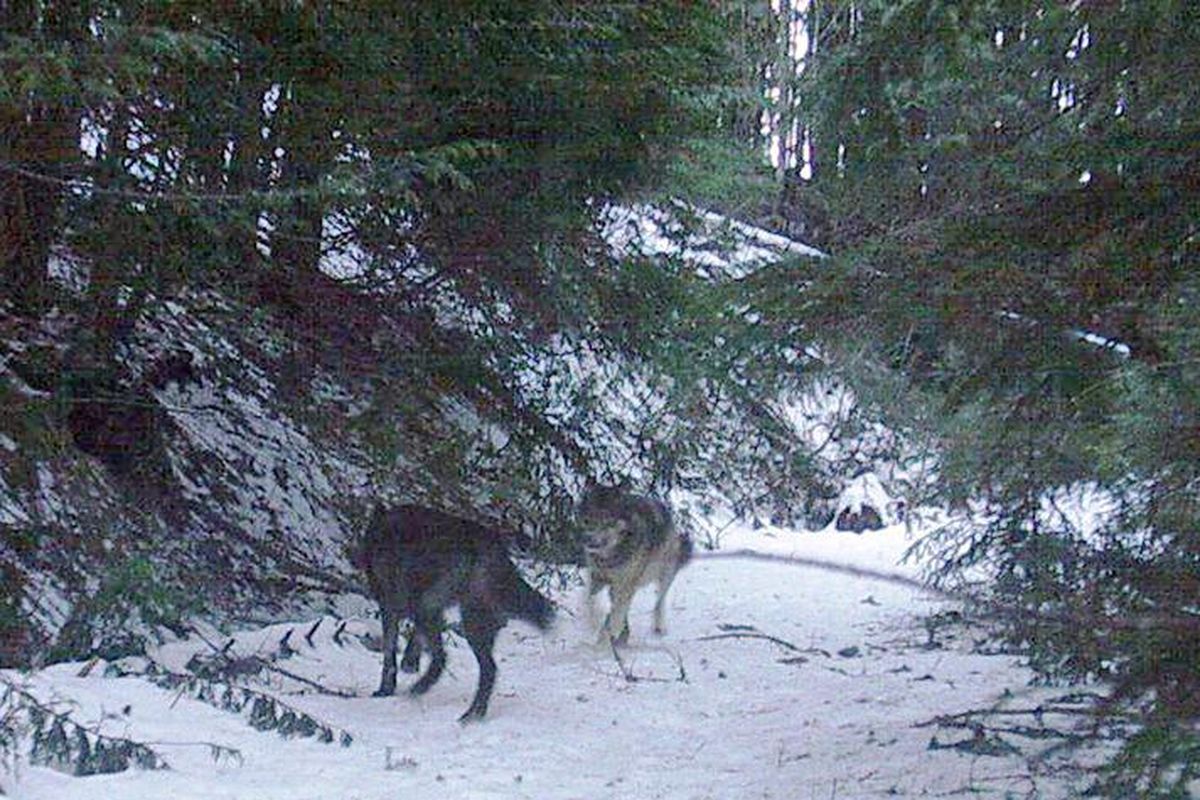Statisticians counter WSU prof’s findings that killing wolves does more harm than good

ENDANGERED SPECIES -- A Washington State University professor erred in controversial research released in 2014 suggesting that killing wolves that attack cattle is counterproductive because it stimulates more attacks, according to a statistical analysis released today.
Working with a Ph.D. statistician, the Washington Policy Center analyzed the data provided by Dr. Robert Wielgus and found several problems with conclusions that are widely used by critics of Washington's wolf management, especially in cases where wolves are killed.
"Rather than support his hypothesis, his own data point in the opposite direction, supporting the state’s policy of removing wolves when there is a conflict and undermining Wielgus’ own hypothesis," says Todd Myers of Seattle-based WPC, a conservative think tank that promotes public policy based on free-market solutions.
Since 2011, Washington has periodically resorted to lethally removing wolves -- from one or two to an entire pack in one case -- to stop repeated attacks on livestock.
Wielgus surveyed the literature and reported that the practice is counterintuitive. “People think, let’s kill the wolves and get rid of the problem," he told The Spokesman-Review in 2014. "But it doesn’t work that way with carnivores. Sometimes, the punitive solution is causing the problem.”
Wielgus tied the increased livestock deaths to disruptions in the pack’s social structure.
“If you kill the alpha male and female, the pack fractures,” he told S-R reporter Becky Kramer. “Instead of one breeding pair, you may have two or three.”
The first challenge to the Wielgus study was published in 2016 by three University of Washington statisticians who crunched the numbers and found that killing wolves that prey on livestock can lead to a short-term increase in attacks, particularly for sheep. But the year after the wolves were killed, livestock attacks went down.
At that time, WDFW had decided to remove members of the Profanity Peak Pack to stop repeated attacks on cattle in Ferry County. Wielgus, leaning from academia toward activism, strongly attacked the decision. The controversy led to death threats and an unusual denunciation of a professor by WSU officials. Wielgus later retracted his comments.
The new analysis released by the Washington Policy Center says the Wielgus 2014 study claim that killing wolves resulted in increasing attacks on cattle and sheep is not supported by his own data.
Statistical analysis identified several problems with the research and confirms weaknesses previously identified by UW statisticians in 2016, Myers said. In his words:
- The WSU study’s conclusions are based on erroneous statistical arguments, and are not supported by rigorous analysis of the study’s own data.
- Contrary to Wielgus’ conclusions, our re-analysis of his study’s data finds that the strongest explanation of an increase in loss of cattle and sheep was simply an increase in the wolf population.
- Wielgus’ study also fails to replicate his hypothesis on an independent data set to ensure his finding is not merely an artifact of this data set.
- Wielgus’ claim that removing wolves increases the number of breeding pairs is also undermined by the data in his study.
- Data in Wielgus’ study actually support the current Washington state strategy of removing wolves where there is conflict with a rancher, consistent with the common-sense conclusion that removing wolves reduces livestock deaths.
